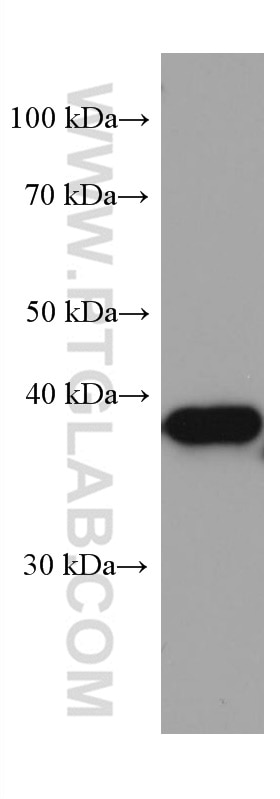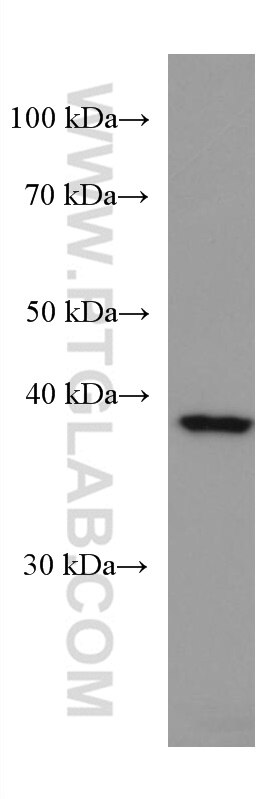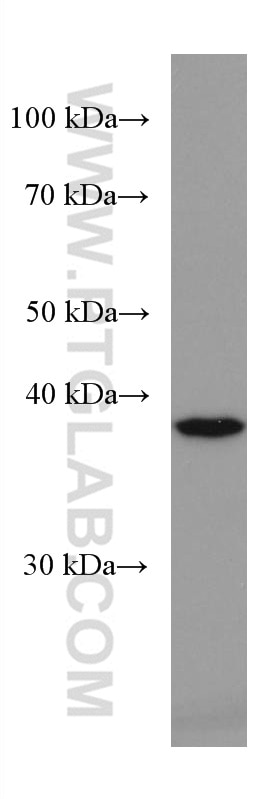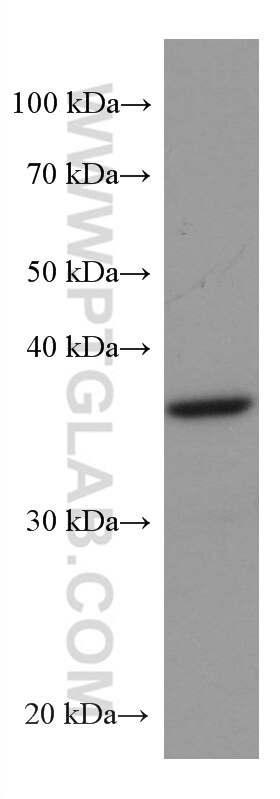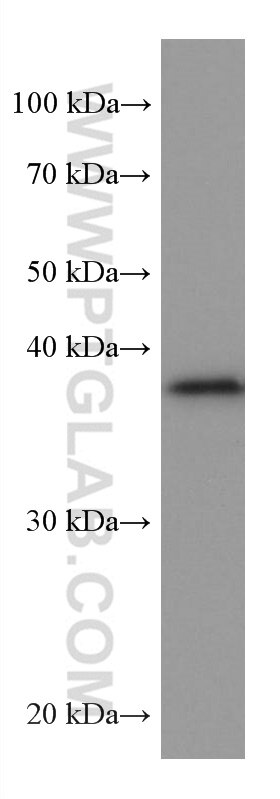Tested Applications
| Positive WB detected in | pig brain tissue, HEK-293 cells, Jurkat cells, rat brain tissue, human testis tissue |
Recommended dilution
| Application | Dilution |
|---|---|
| Western Blot (WB) | WB : 1:2000-1:8000 |
| It is recommended that this reagent should be titrated in each testing system to obtain optimal results. | |
| Sample-dependent, Check data in validation data gallery. | |
Product Information
67262-1-Ig targets ZnT3 in WB, ELISA applications and shows reactivity with Human, pig, rat samples.
| Tested Reactivity | Human, pig, rat |
| Host / Isotype | Mouse / IgG2b |
| Class | Monoclonal |
| Type | Antibody |
| Immunogen | ZnT3 fusion protein Ag10735 Predict reactive species |
| Full Name | solute carrier family 30 (zinc transporter), member 3 |
| Calculated Molecular Weight | 388 aa, 42 kDa |
| Observed Molecular Weight | 38-40 kDa |
| GenBank Accession Number | BC028358 |
| Gene Symbol | ZnT3 |
| Gene ID (NCBI) | 7781 |
| RRID | AB_2882533 |
| Conjugate | Unconjugated |
| Form | Liquid |
| Purification Method | Protein A purification |
| UNIPROT ID | Q99726 |
| Storage Buffer | PBS with 0.02% sodium azide and 50% glycerol, pH 7.3. |
| Storage Conditions | Store at -20°C. Aliquoting is unnecessary for -20oC storage. 20ul sizes contain 0.1% BSA. |
Background Information
ZnT3, encoded by SLC30A3, is a member of SLC30A family which is zinc transporter sequestrating cytosolic zinc into intracellular compartments or effluxing zinc to the extracellular space. Excessive zinc level can cause neuron apoptosis and lead to cognitive impairments. Znt3 facilitates the transport and storage of zinc in synaptic vesicles. Abnormal ZnT3 expression has been linked to some neurodegenerative disorders.
Protocols
| Product Specific Protocols | |
|---|---|
| WB protocol for ZnT3 antibody 67262-1-Ig | Download protocol |
| Standard Protocols | |
|---|---|
| Click here to view our Standard Protocols |
